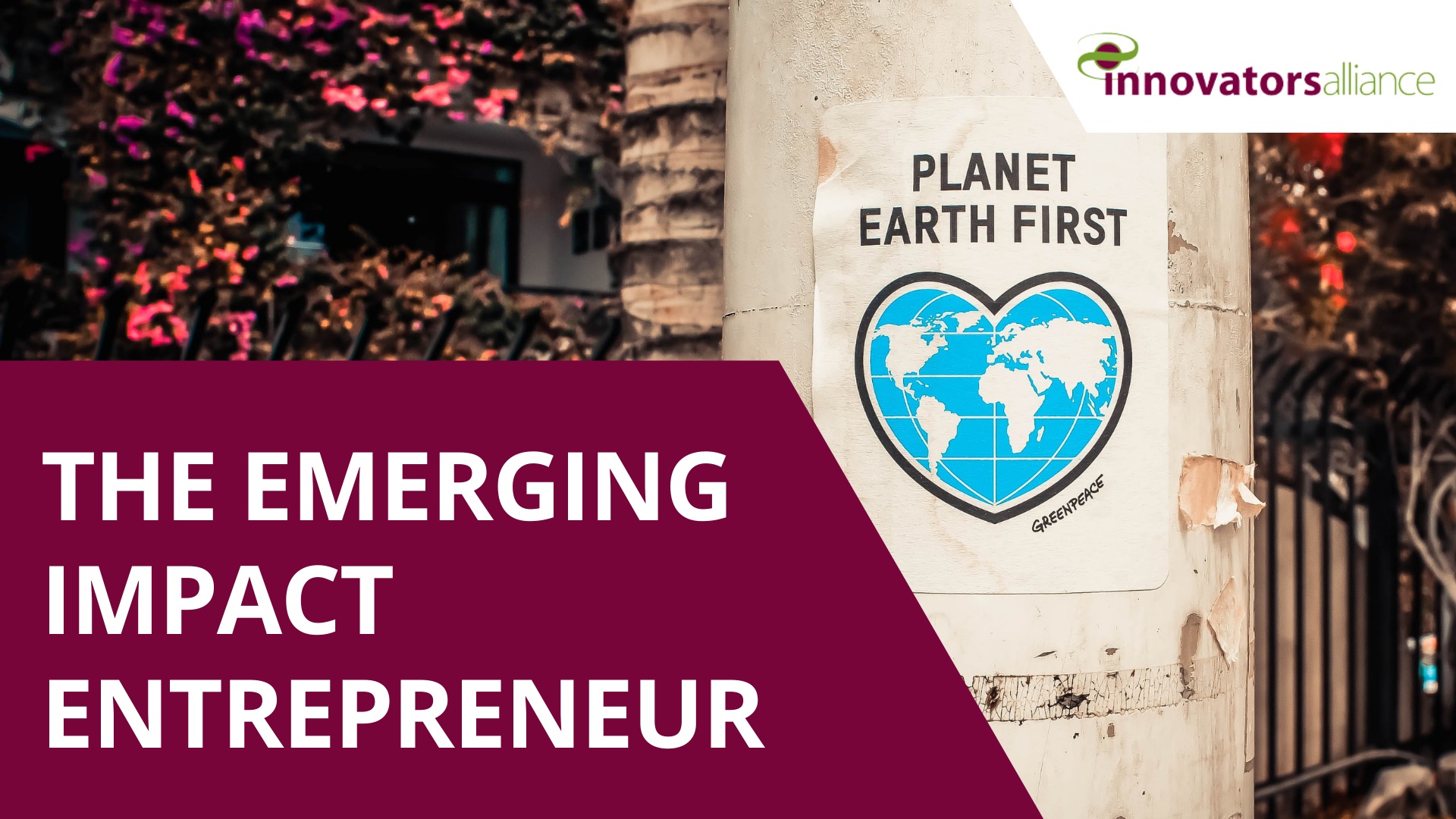
Have you noticed? The business paradigm is shifting with an increased focus on ‘impact’ entrepreneurship.
Every business, from start-up to big corporation, creates impacts—positive and negative—through its activities. In this new paradigm, businesses need to be upfront about their impacts due to expectations of consumers, regulators, shareholders and employees.
This shift toward transparency and taking responsibility for the results of business activities is being led by ‘impact entrepreneurs’ who want to do their part to take care of the world’s environment and people for future generations.
Consider how businesses are seeking alternatives to plastic, adopting renewable energy, sharing technology designs for global benefit, and looking at circularity in supply chains.
Impact entrepreneurs consciously create positive change in the world.
- Elon Musk, the founder of Tesla, released to open sourcing all Tesla’s patents for creating electric vehicles to support efforts to fight climate change.
- Impact Engineering, based in Vancouver, re-imagines built environments “in harmony with the natural world,” decarbonizing building operations while improving comfort and reducing costs. They also seek to inspire others to do better and consciously support positive impacts in local communities.
- LiCycle is on a global mission to make lithium-ion batteries a sustainable product. Their facility in Kingston, ON recycles the critical components of 5,000 tonnes of lithium-ion batteries annually. Using a water-based solution, LiCycle recovers up to 95% of the batteries’ resources, separating out plastics, metals and battery-grade lithium-ion chemicals for sale and re-use. Their only output is a minimal clean water discharge.
Impact entrepreneurs realize everything they do through their company has an impact and they choose to take a long-term view, focusing their business on becoming the best FOR the world, more than on being the best IN the world.
Focusing on positive impact does not have to take away from the bottom line.
- Patagonia creates sustainably made hiking equipment and is very successful financially.
- Canadian Tire Corporation is recognized internationally for the sustainability of its retail strategy.
- Unilever, recognized as the No. 1 corporate sustainability leader, saw returns of nearly 300% in the decade following the launch of the Unilever Sustainable Living Plan (USLP) during the tenure of CEO Paul Polman.
Innovative impact entrepreneurs develop not only a revenue model for their business, but also an impact model which encompasses the whole spectrum of impacts created by their business, upstream and downstream.
The key lenses for assessing impact are environmental, social and governance (ESG).
The environmental lens is most familiar since everyone has heard of carbon footprints and reducing emissions. Examples of other environmental impacts are use of natural resources, energy efficiency, and pollution waste.
Social impacts gained visibility during the pandemic, with more focus on workforce health and safety. Some other areas of social impact are diversity, equity and inclusion policies, employee training, privacy and data security, and community programs.
Governance impacts include Board diversity, Board independence, shareholder rights, management compensation, business ethics and all material risks, including climate change, cyber-security, geo-political, and supply chain, among others.
Impact entrepreneurship – why now?
Impact entrepreneurs have emerged because of two drivers: the climate emergency and stakeholder pressure.
Deloitte reported in their 2022 CxO Sustainability Report that 97% of the global executives surveyed said their companies had been “negatively impacted by climate-related events” and “89% agree there is a climate emergency.”
Financial institutions that signed onto the Paris Climate Agreement are poised to accelerate the transformation to a net-zero emissions economy by redirecting capital to businesses with sustainable technologies and requiring transparent reporting.
The Deloitte survey also found that 79% of small and medium-size enterprises feel pressure from regulators, consumers, employees and investors, to adopt sustainable business practices.
Companies that ignore this pressure from stakeholders may incur significant risks: fines or penalties, decreased valuation, loss of customers and investors, and harm to reputation.
Is it time to get started?
If you share concerns about the climate emergency and want your company to be a force for good in the world, or if you are having trouble securing funding because you haven’t assessed your company’s impacts, there are free opportunities and resources to get you started.
The best place to start is to assess your company’s unique impacts. HSBC’s Sustainable Finance office has a Quick Assessment Tool and Business Development Bank of Canada’s B-Corp advisors can help you become a Beneficial company that creates prosperity while building a strong community in a sustainable environment.
If you would like to network with other innovators interested in impact entrepreneurship, please visit Innovators Alliance. Our peer-based membership connects you with other business leaders, bringing together innovators across the country to gain insight into our ever-changing climate.
- Global Forecaster Wants You to Succeed - February 22, 2023
- Are You Prepared for “the Riskiest Year” in Business? - January 19, 2023
- A Precious Gift to Yourself this Month - December 6, 2022

